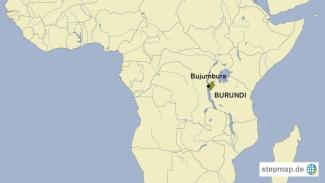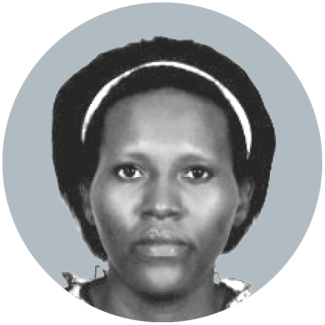Marginalisation
No place for the Twa

Minani is a Mutwa (the singular of Twa) from Cibari in the northern province of Muyinga. He lives with his wife and six children in a hut that consists of only one room. “When it rains, it rains in,” Minani says. “We have no fertile land to farm; we live from pottery but it is increasingly difficult to find clay.”
Karorero from Buganda in Cibitoke Province in the west of the country has a different problem. He can find plenty of clay but struggles to find buyers for his pottery. He says the Hutus and Tutsis today use modern household and kitchen utensils and have stopped buying the housewares that the Twa make. Twa are now forced to work as hired hands on other people’s land. Minani and Karorero both feel that their ethnic group is being discriminated against.
Burundi’s constitution of 2018 formally recognises the Twa and requires that they be represented in the National Assembly by three co-opted deputies. Co-option is based on lists of proposed candidates submitted by Twa organisations in the various regions of the country. UNIPROBA (Unissons-nous pour la Promotion des Batwa) is one of those organisations. However, it rejects co-option and fights instead for fair representation for the Twa across Burundi’s institutional landscape.
Libérate Nicayenzi, a member of UNIPROBA and representative of the Twa on Burundi’s Truth and Reconciliation Commission, says: “For various institutions, the constitution prescribes that Hutus and Tutsis should be represented on a 60-40 basis. So where do we fit in? How does that prescription square with Article 1 of the Universal Declaration of Human Rights: ‘All human beings are born free and equal in dignity and rights’?”
Emmanuel Nengo, who is also a member of UNIPROBA, stresses that discrimination is only one of the Twa’s problems; many more stem from poverty. Children are not sent to school, for instance, or they are taken out of school early because they are needed at home to make pots. They also lack school materials. According to Nengo, development is out of the question if people have no land to farm, no proper housing and no education.
Nicayenzi points out that the Twa should also do some soul-searching themselves. She appeals to all Twa parents to cast off old conventions and send their children to school. Even the government would like more cooperation from the aboriginal inhabitants. A local official from Muyinga complains: “When a philanthropist builds houses for the Twa to raise their standard of living, they immediately sell the roofing sheets.”
Mireille Kanyange is a journalist and reporter for Radio Isanganiro in Burundi.
mika.kanyange@gmail.com








